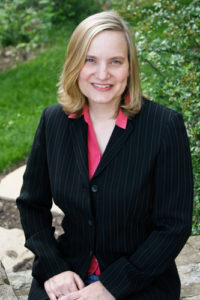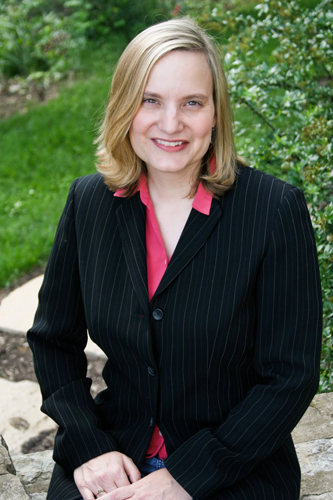 Standout Mormon author, scholar, and commentator Jana Riess is working on her next book, which will focus on Mormonism’s “Millennial” generation (those now between ages 18 and 35) and their spirituality, religiosity, views and attitudes toward aligning with institutions, and much, much more. It will be titled The Next Mormons. In service of that project, she is actively interviewing many, many people, and has just this week launched a Kickstarter campaign to fund a massive, representative national survey of four generations of Mormons, seeking to find key areas of difference that can help illuminate what is occurring among the generation of Latter-day Saints just entering serious adulthood. This episode shares Jana’s vision for the importance of these interviews and studies and the information they will yield, but Jana and co-panelists David Campbell and Derrick Clements, along with Mormon Matters host Dan Wotherspoon, talk about several themes and trends we are now beginning to see come forward among Millennials. The discussions are fascinating, ranging from Millennial “seeking” to attitudes towards marriage and family, as well as experiences in church settings such as temples, sacrament and other meetings, singles and mid-singles wards, etc. It is enough to definitely wet our whistle and become even more thirsty for more information to come forth, especially through Jana’s capable, enjoyable, wonderful head, heart, and hands.
Standout Mormon author, scholar, and commentator Jana Riess is working on her next book, which will focus on Mormonism’s “Millennial” generation (those now between ages 18 and 35) and their spirituality, religiosity, views and attitudes toward aligning with institutions, and much, much more. It will be titled The Next Mormons. In service of that project, she is actively interviewing many, many people, and has just this week launched a Kickstarter campaign to fund a massive, representative national survey of four generations of Mormons, seeking to find key areas of difference that can help illuminate what is occurring among the generation of Latter-day Saints just entering serious adulthood. This episode shares Jana’s vision for the importance of these interviews and studies and the information they will yield, but Jana and co-panelists David Campbell and Derrick Clements, along with Mormon Matters host Dan Wotherspoon, talk about several themes and trends we are now beginning to see come forward among Millennials. The discussions are fascinating, ranging from Millennial “seeking” to attitudes towards marriage and family, as well as experiences in church settings such as temples, sacrament and other meetings, singles and mid-singles wards, etc. It is enough to definitely wet our whistle and become even more thirsty for more information to come forth, especially through Jana’s capable, enjoyable, wonderful head, heart, and hands.
Please listen to the conversation, visit the Kickstarter (it only runs through Friday, July 29th), and join in the dialogue below!
The Next Mormons Kickstarter Campaign
__________
Links:


Comments 10
Awesome discussion. Thank you so much! I was thinking “the internet, the internet, duh, the internet” right before you mentioned that the data doesn’t correspond with the rise of the internet. I have a degree in sociology, but haven’t been in the industry for 20+ years. My 2 cents: My dad was born in 1930. My parents were very much socialized to buy into a class system where a very few people at the top controlled things (church leaders, TV news executives – just 3 channels, a few powerful newspapers – all held control of information.) I think things changed in the Vietnam War era. Journalists on the ground sent photos and described combat to America. It was the beginning of the end of any one or two massively powerful groups controlling public opinion (Patriotism, war heroes, victory speeches & parades – it all started crumbling in the early 60’s). The internet has certainly accelerated this. One of my favorite FB posts was written by a very well-known LDS business tycoon. He posted on his partner’s wall (a friend of our family, I won’t use real names.) He wrote, “Look at us David, here on Facebook. What has become of us?” The sociologist in me felt a thrill. This is beautiful! The masses have a voice, the stratifications are being leveled. It’s only painful for people who use to have power and control and don’t know what to do about losing it. Steering public opinion, dissemination of information, any one-sided narrative – the loss of these things began, imv, in the 60’s, and have exponentially increased with the internet. Power to the people! Thanks for the fascinating discussion.
Amen amen amen to Derrick’s comment about transparency. I think I am like many of my fellow millennials in finding it second nature to distrust the leadership of large institutions. When I think of the modern politician I think of Nixon and Clinton not Reagan and Roosevelt (i.e. not a public servant at the head of a particular political movement but an ambitious individual with a personal sometimes hidden agenda). I’m over simplifying my own feelings here and certainly those of my generation, but I do think this is a real and general trend. My sense is that businesses and governments have done a pretty good job recently of increasing their transparency while the Church has lagged behind. Certainly the pressure on businesses and governments has been stronger (consumers can transfer their business or their vote more easily than they can switch religions) but whatever the reason for the Church’s relative complacency, I think young people are less willing than their predecessors to be patient with it. I suspect the internet has something to do with this
Thank you Jana for doing this important work! I’ll be donating to the Kickstart and can’t wait to see the results. Thank you Dan, David, and Derrick for helping to bring attention to the project.
I kept wondering if you would bring up the women’s movement and civil rights movement and its effect on all this. We are in the first couple of generations where egalitarian and companionate marriage is even possible (relevant to the timing of lgbt marriage conversation). I admit probably seeing patriarchy as having a big effect in everything more than it may (like blaming the Internet), but it does seem like we are experiencing some of the effects of kids who grew up with social policies that made it more possible for women to forgo unhealthy marriages that they were economically tied to before (and still often are). The history of marriage, by Stephanie Coontz, is so interesting about this change over time. What do you think about the effect of gender role perspectives on changing views–do any questions address this?
And to the conversation about marriage being less likely for lower socioeconomic families, these articles are interesting. I wonder if they are relevant to Mormon millennials?
http://www.theatlantic.com/business/archive/2014/02/how-to-save-marriage-in-america/283732/
Discusses some of the ways traditional gender roles can sabatoge low income marriage, and makes a case for focusing on parenting fathers rather than provider fathers.
And this study from ucla debunking the myth that low income families don’t value marriage–they are just more realistic about how economic difficulties affect marriage
http://newsroom.ucla.edu/releases/poor-people-value-marriage-as-236346
“Why are low-income women postponing marriage but having babies?” Karney asked. “Because they don’t want to get divorced. They think if they marry their current partner, they are likely to get divorced — and couples that have financial strain are much more likely to have marital difficulties. It’s like these women have been reading the scientific journals about marriage; their intuition is absolutely correct.”
“The best way to lower teen pregnancy rates, he said, is to increase social mobility. Government money would be better spent helping low-income people with the day-to-day challenges in their lives”
“There is a lot you can do with a billion dollars to promote marriage, including helping people with child care and transportation; that is not where the money has been spent,” Karney said. “Almost all of that money has been spent on educational curricula, which is a narrow approach, based on false assumptions. Communication and emotional connection are the same among low-income people as in more affluent group. Their unique needs are not about relationship education. None of the data support the current policy of teaching relationships values and skills. Low-income people have concrete, practical problems making ends meet.”
Will we be clearly able to distinguish between these Active and Non Active Members in the survey responses?
As a former Catholic, I personally don’t consider non active members to be Catholic. Catholics have a phrase “I’m a believer” (Creyente in Spanish). They don’t go to church but believe it, and may only attend life milestone events to invite or join in with relatives festivities or ceremonies.
To consider less active members as Mormons seems incongruent, and it really ought to be differentiated since they are a subgroup in of itself. It seems that the intention is to mine for this specific data point in mind, whereas personally I’m more interested in just the active members responses.
Great project!-and podcast. I was wondering how the survey will be distributed–how respondents will be marketed to. How will you market to and get respondents from groups of Mormons who are not heavily biased toward progressive thought? I suspect that if you were able to get ‘advertisements’ in such orthodox venues as Millennial Star or Meridian that many there would not participate because they may distrust any non-official LDS source for interpreting information or may feel there is a liberal agenda to the survey and that the results would be spun in a way that was not fully ‘faithful.’
Oops, ignore my previous comment, as I made it prior to listening to the last of the podcast where I can see that the survey will be a random sample, not self-selected. I look forward to the results!
Pingback: Who is leaving the LDS Church?Coaster World News | Coaster World News
Pingback: Who Is Leaving The LDS Church? – Religion News ServiceAll Breaking News | All Breaking News
Pingback: ‘The Next Mormons’ – Derrick Clements